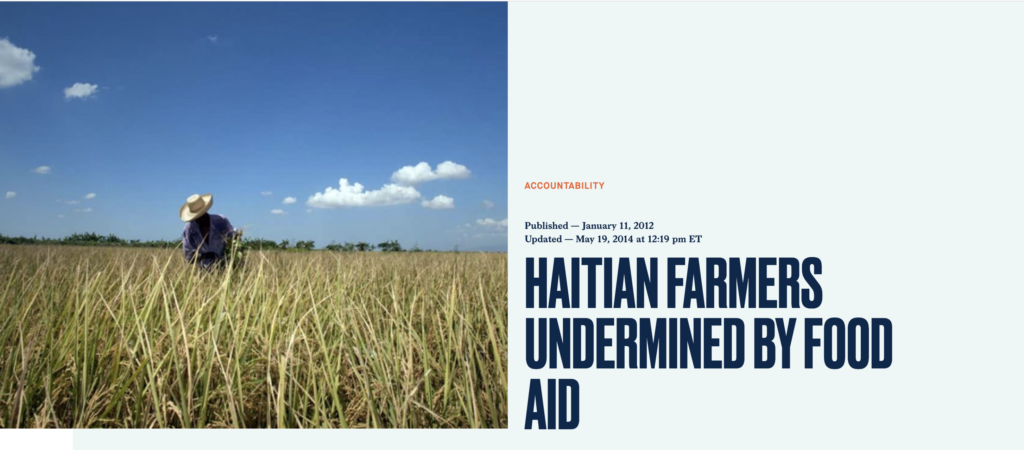The 2012 Farm Bill could reverse a decades-long policy of agricultural subsidies that has undercut Haiti’s local rice production
PORT-AU-PRINCE, Haiti — Deep within Haiti’s beautiful Artibonite Valley, a man wades barefoot through loose mud that comes up to his knees. Bending over, he takes individual strands of rice seed from a clump in one hand, stuffing them quickly into the mud one by one.
Were he a hopeful man, Denis Jesu-car, 32, would tell you that four months from now, he’ll be rewarded with a few large sacks of rice that he can then sell in Haiti’s capital, Port-au-Prince, earning him enough to buy food until the next harvest season and send his children to school.
But Jesu-car is no longer hopeful. That’s because this farmer who rents a small plot of land he tends without modern tools or fertilizer is competing with giant American rice companies that produce hundreds of thousands of tons of better quality rice — and ship them to Haiti at artificially low prices.
Read the full story as it appeared at the Global Post.
